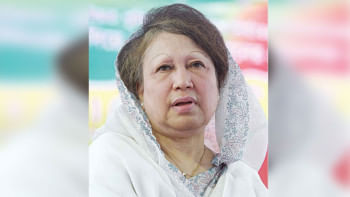Voices To Be Heard

"It was the least I could do, provide shelter to a woman 7 months pregnant who had experienced a near-death experience due to a deadly flood," mentioned Jeba. Without a care for her life, she bravely rescued the woman from a hut who was neck-deep underwater, trapped, and unable to get out. The woman was in fear of what would happen to her unborn child and where she would go with nothing in her possession and that was all Jeba could worry about.
Jeba's calling to be a climate activist came to her long before this. On several occasions, she had witnessed her neighbors, relatives, and close ones suffer from climate change.
Humayra Ahmed Jeba is a climate change activist and an Honors third-year student in the Political Science Department of MC College in Sylhet. She is affiliated with Bangladesh Red Crescent as one of the volunteers of the team leading rescue and relief operations.
The young lady has also been working with Save the Children for about three years and has received a prestigious award from an international NGO.
Jeba emphasizes the collaborative nature of decision-making within the team, where every member's opinions and decisions hold equal value and importance in addressing the issue. Their initiatives focus on educating and raising awareness among the residents of her hometown, managing loss and damage in various areas, persistently striving to gain recognition from policymakers, and uniting like-minded individuals to amplify their collective impact for the cause.
Jeba underscores the greater vulnerability of rural areas compared to urban ones, emphasizing the significant challenges faced by people in these regions who lack the necessary resources and funds for post-damage recovery. While the city may not experience the same extent of flooding and impact as rural areas during rainfall, it is not immune to safety concerns.
According to Jeba, it is imperative for policymakers to directly engage with local communities, comprehending the severe extent of their suffering and its repercussions. This entails not only providing additional funding and facilities but also ensuring that the voices of all individuals are heard and acknowledged.
Written by Tazri Marwa Ahmed

 For all latest news, follow The Daily Star's Google News channel.
For all latest news, follow The Daily Star's Google News channel. 



Comments